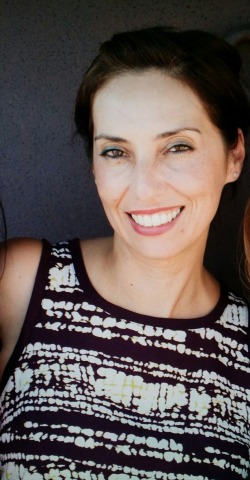SC CTSI Matches Scientists with Community Mentors to Boost Success of Community-Engaged Research
The training program has helped junior faculty such as Lilyana Amezcua, MD, advance her research on multiple sclerosis.
To address the NIH emphasis on improved health and research in underserved populations, the Southern California Clinical and Translational Science Institute (SC CTSI) has launched a mentorship initiative to connect young clinician scientists with experienced health care professionals in the Los Angeles region.
SC CTSI KL2 Scholar Lilyana Amezcua, MD, assistant professor of neurology at Keck School of Medicine of USC, is among the program's early participants. A specialist in multiple sclerosis (MS), she studies the role of race and ethnicity in the disorder, with a focus on Latinos, a patient population that has been inadequately served by academia and the pharmaceutical industry.

As part of SC CTSI’s mentorship initiative, Amezcua was paired with Mercy Willard, MNM, who is Senior Director of Community Development and Outreach for the National Multiple Sclerosis Society. The pair worked well together, and over time their relationship evolved from mentor-mentee to colleague-colleague, said Amezcua.
Willard and Amezcua worked together to recruit MS patients from faith-based groups and throughout LA's Latino community to take part in her research on the use of promotoras -- laypeople from the community trained to provide education about health issues. Partly because MS is less common among Latinos, fewer educational materials have been designed for their particular needs -- an issue Amezcua hopes to address through her research.
"The Latino MS community has long felt ignored and wasn’t necessarily eager to join a research project, but together we have been able to bring people together," said Amezcua. "First, I identified the faith-based groups through my clinics and communicated this to Mercy, including some of their past concerns about working with national organizations outside the community. Straight communication led to visits and development of programs, including the promotora program for MS."
At the same time, Amezcua helped the National MS Society sharpen the medical and scientific details of materials the group developed for research and education, said Willard.
"This is the first time we have worked with a USC faculty researcher in this way," Willard said. "Because of her background in the science, Lilyana was able to help us develop educational materials geared towards laypeople to include much deeper understanding of the science and medical information about MS. Now we'll be able to share these materials with patient groups across the country."
SC CTSI’s Community Mentorship Initiative
The goal of the Community Mentorship Initiative is to help newer researchers establish productive community partnerships that accelerate the impact of their research on human and community health.
Open to KL2 Scholars and TL1 Trainees, the project is a collaboration between SC CTSI's Education, Career Development, and Ethics (ECDE) and Community Engagement (CE) programs.
"Community-engaged research is a complex function that requires investigators to coordinate the needs of multiple parties, including health care providers, local organizations, churches and faith-based groups, and schools," said Katrina Kubicek, MA, assistant director of the CE program. "The right mentorship can help them develop these skills."
"The program is designed not only to help our ECDE Scholars and Trainees make progress in key professional outcomes like publications, forum presentations, and NIH funding, but also to help researchers make a more immediate impact on the health of the communities they work with," said Cecilia Patino-Sutton, MD, MEd, PhD, director of education for the ECDE program.
Project participants meet with their community mentor at least once, but the mentors may become part of the Scholar’s or Trainee's research mentoring team, meeting two to three times during the year-long course of the program. The Scholar or Trainee also conducts a research presentation in a community setting to receive feedback on issues including the research project's design and relevance and the researcher's communication and presentation skills.



